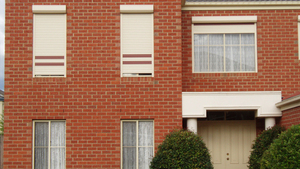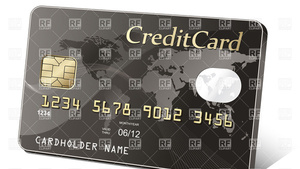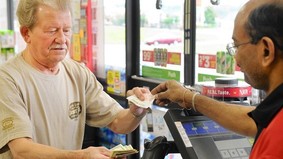(Submitted by Skepticality listener Bill Walker.)
Hi, I am a contractor in New Jersey. I recently ordered 14 windows for a job. They only had 11 of the windows in stock so I agreed to accept the 11 and get the other 3 when they became available.
A few days later when the 11 windows were delivered to the jobsite I paid for them with my business credit card. They completed the transaction by having the driver call the home office and give them my credit card information. The driver gave the secretary the 6 digit total for the windows and then proceeded to give her my credit card number.
As he was giving her the credit card number I heard her stop him before he finished so I asked what was wrong. It turns out that the first 6 numbers of my credit card were the exact same 6 numbers, in the same order, as the total for the delivery. She thought he was giving her the total again. And since my card grouped the first 4 numbers together there was even a space where the decimal in the total is located.
I would be interested in knowing what the odds of that happening might be. Even throwing aside the fact that I didn’t receive the complete delivery and that I chose to use that particular card it must be a very rare event.
I have recounted this story to a few friends since it has happened and, to a man, the response has been “You should play those numbers”. (in the NJ Pick 6 Lottery)
When my wife suggested that to me I responded by saying that of course I should play those numbers because the same super natural force that had created the coincidence was surely going to exert it’s powers over the lottery for me too. I didn’t play the numbers.
It’s easy to see how someone who has a tendency to believe that there is no such thing as a coincidence and everything that happens has meaning would assign special significance to an event like this. And apparently even for people who seems completely rational their first response was to suggest that the numbers on my credit card and a receipt for some windows could somehow influence the outcome of a lottery.
Hopefully I won’t fall into that trap. Knock on wood.
Below are the extended notes provided by contributing editor Mark Gouch for use in Skepticality Episode 248. Mark is a wastewater treatment system operator and engineer living in Smithtown, NY (Long Island). He started to become interested in coincidences after recognizing the series of events that conspired to get him employment on Long Island many years ago. Two of Mark’s recommended books include “The Drunkard’s Walk: How Randomness Rules Our Lives” by American physicist and author Leonard Mlodinow, and “The Hidden Brain: How Our Unconscious Minds Elect Presidents, Control Markets, Wage Wars, and Save Our Lives” by Shankar Vedantam.
Take a look and leave your comments below. Also, please be sure to listen to the podcast for our own hilarious commentary.
We’re sure it must have been at first a confusing, then a weird experience to realize that the sequence of numbers in your credit card matched the sequence of numbers in the cost for the windows. Determining the probability of this happening seems to be a pretty straightforward process. Bill also asked a few related questions that are interesting.
First of all, Bill did not mention the cost of the individual windows. Assuming they cost somewhere in the range of $120 to $500 each (based on a quick web search for single hung windows), the range of costs would be from $1,320 to $7,000. The low number in the range is estimated using the low range of cost of windows and only 11 being available. The high end of the range is estimated using the high range of the unit cost and assumes all 14 windows were available. Almost forgot this: If we assume NJ state tax of 6%, the maximum cost would be $7,420.00. This demonstrates that regardless of whether 11 or 14 windows were available, the cost would be less than $ 9,999.99, so the cost including pennies will contain six digits (Thousands, hundreds, tens, and dollars, and two decimal, or cents digits). Therefore, the fact that only 11 were available does not change anything in the probability estimate. Anything we determine is true for 11 windows available, will be true for the case of 14. We will still be talking about a series of 6 digits. Make sense?
So the question is what is the probability of a six digit series of numbers matching a different series of six digits. The possible range of six digits is 000000 to 999999. (Writing it as either digits with commas or using dollar figures makes it easier to see there are six digits). So there are one million possible sequences of numbers of six digits. And the odds would be 1 in 1,000,000, one in a million.
Now considering how many thousands of contractors there are, and how many pay for supplies in the same cost range with credit cards would be tough to estimate. But it is reasonable to expect that there are well over one million such purchases in the U.S. annually. So this probably happens at least once a year in the U.S., and probably much more often than that.
Bill mentioned the decimal point in the cost matched up to a space in the sequence of digits on the credit card. This seemed like an addition to the coincidence. He did not mention the lack of a space in the card sequence where the comma would be in the cost, which, if you consider a space in the place where the decimal was to be noteworthy, one would assume you would think that the lack of a space where the comma would be to be noteworthy also. This may be a case as Dr. Michael Shermer has pointed out many times that our brains “remember the hits and forget the misses.” But in general, we’re talking about a sequence of numbers, so let’s ignore the decimal point and comma. (Plus, in Europe they use decimals and commas in the opposite functions as we do, so thinking more globally, lets agree it is ok to ignore them.).
Now to the question of whether it is sound advice to suggest that based on this coincidence that it would be wise to purchase a lottery ticket with the same sequence of numbers. It would not. In probability these are referred to as independent events. What the sequence of numbers in a credit card number and/or an invoice amount are, will have absolutely no effect on the random numbers generated by a lottery ticket. The odds will be the same for your lottery number. But if that series of numbers were to win the lottery for you, you’d have a heck of a story to tell. It would still only be a coincidence, but a good story. So if you want to choose the same numbers for a lottery, do it for fun, but don’t do it expecting any advantage or disadvantage in your odds of winning the lottery.
Lastly, the question of whether some supernatural entity had an impact on the coincidence. Bill offered no evidence for the existence of, or the potential observed impact of a supernatural entity on the coincidence or any other event that has occurred in the real world. So it would be impossible to estimate the odds of that. We are skeptical enough to demand evidence.




